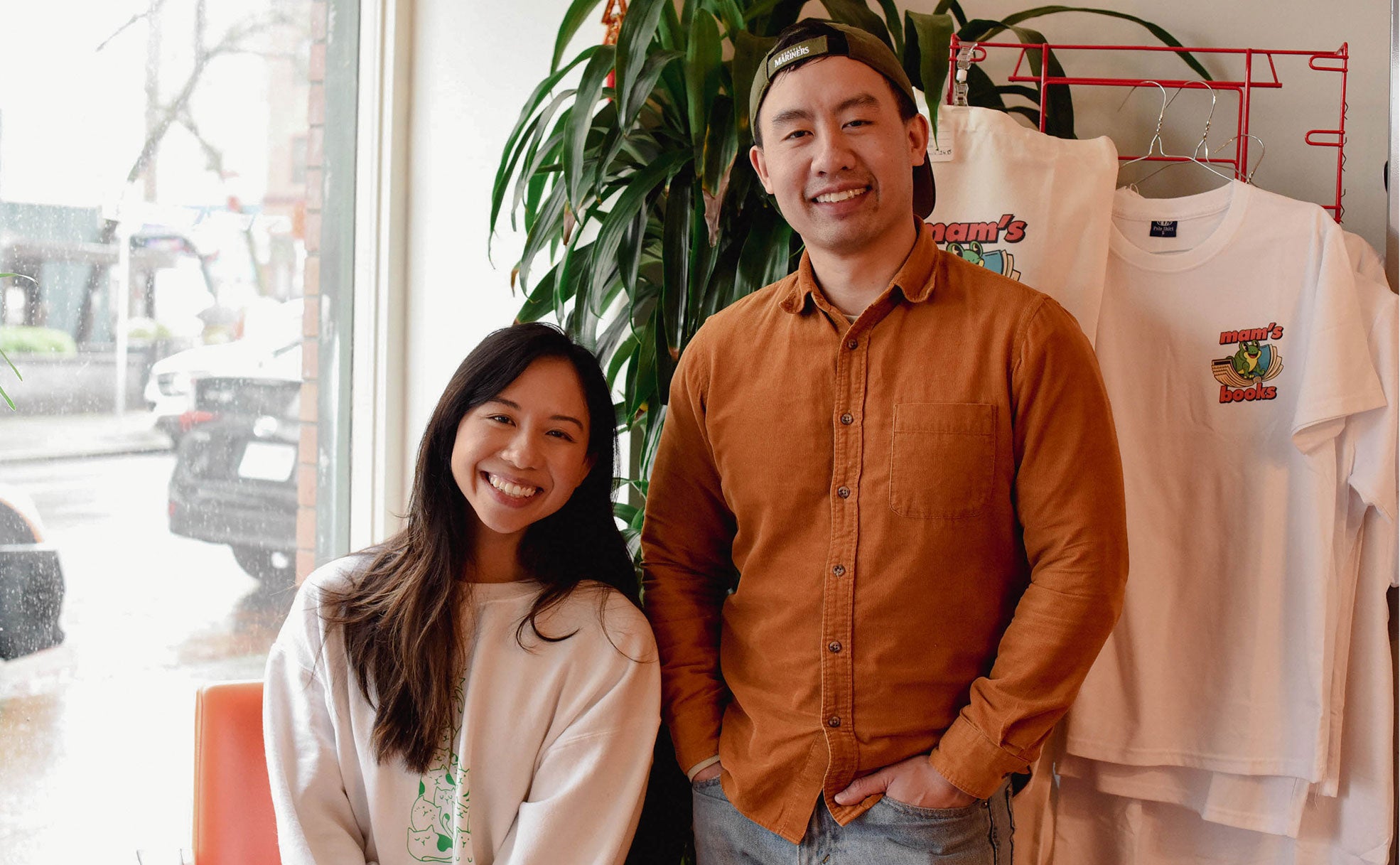
Seattle's First Asian American and Cambodian Owned Bookstore
Seattle’s first Asian American and independently owned bookstore opened in October of last year by Sokha Danh, a son of Cambodian refugees. Mam's Bookstore is located in Seattle’s Chinatown International District (CID), a bustling neighborhood well known for its deep Asian American history.
The bookstore highlights Asian American authors, artists, and entrepreneurs. Not only does Danh stock fiction and nonfiction books in multiple languages and a wide selection of young adult and children’s books, but he also supports local Asian American-owned businesses. One of the businesses he stocks are products from Anak Toy Kompany, a Filipino American owned, Seattle-based toy company that makes cultural toys that teach the Filipino language (along with other languages). Mam’s also takes suggestions on what authors and books should be included in their bookstore. And to invite people to hang out, snacks and nonalcoholic drinks are for sale.
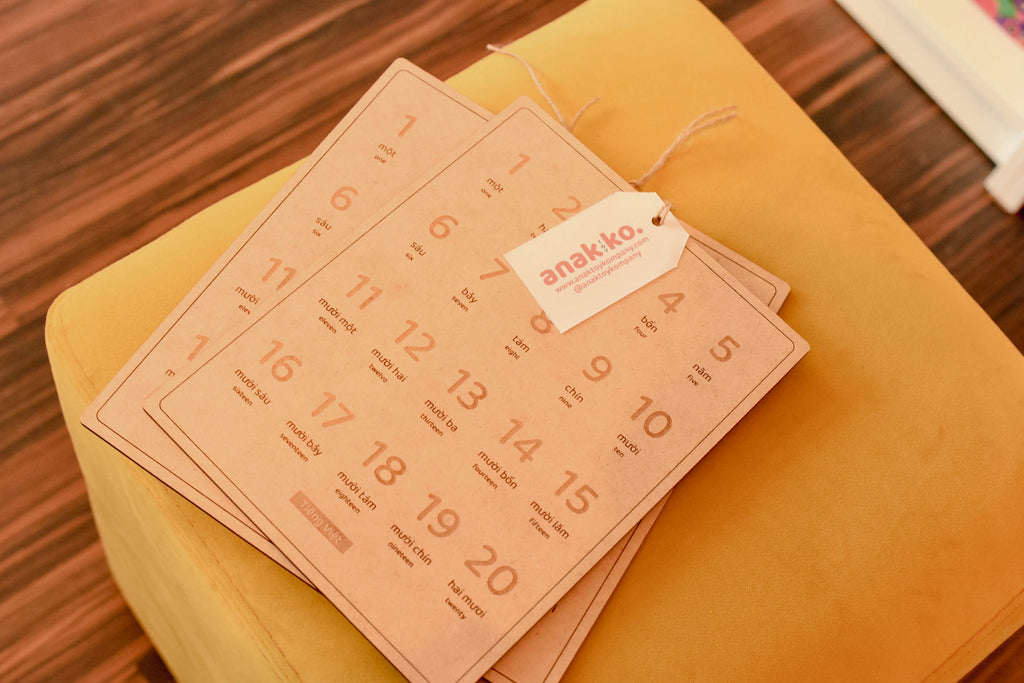
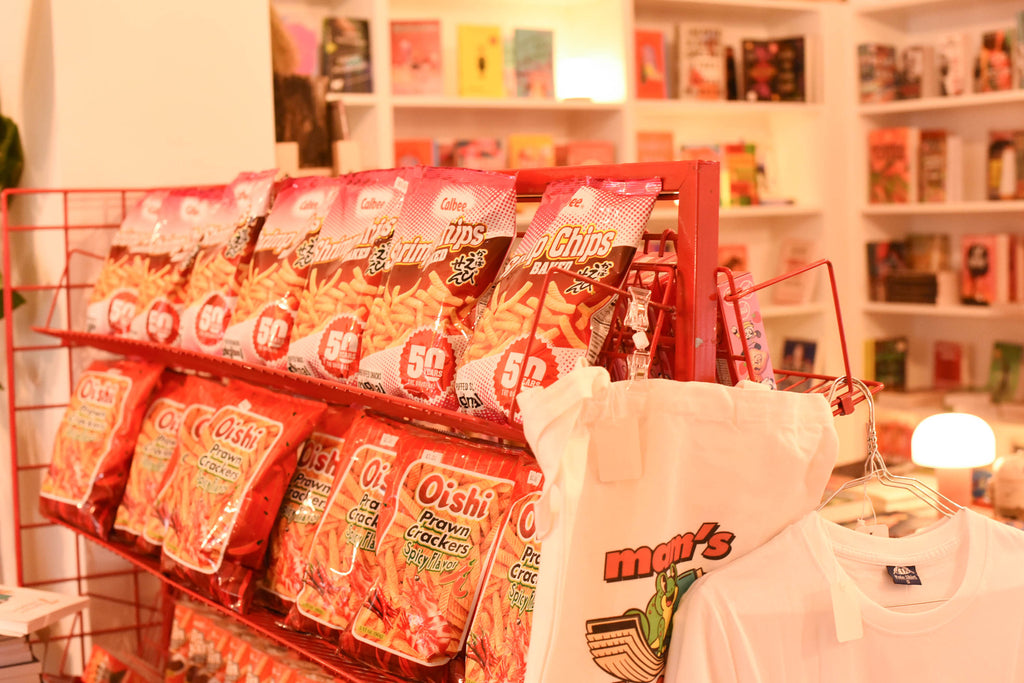
Danh has a strong devotion to Seattle’s Asian American community born out of his community activism working with local nonprofits, particularly in the Seattle CID. His family also arrived in the United States as refugees from Cambodia. They initially settled in Louisiana and then moved to the White Center neighborhood of Seattle where Section 8 housing opened up.
Danh's passion for the community eventually led him to founding and opening Mam’s Bookstore. He located a 1000-square-foot space in Seattle's Chinatown, painted it with bright colors and the rest, as they say, is history.
Read on to learn more about what Danh hopes Mam’s Bookstore brings to the Seattle Chinatown neighborhood and the broader Asian American community and how his family and background has influenced the bookstore.
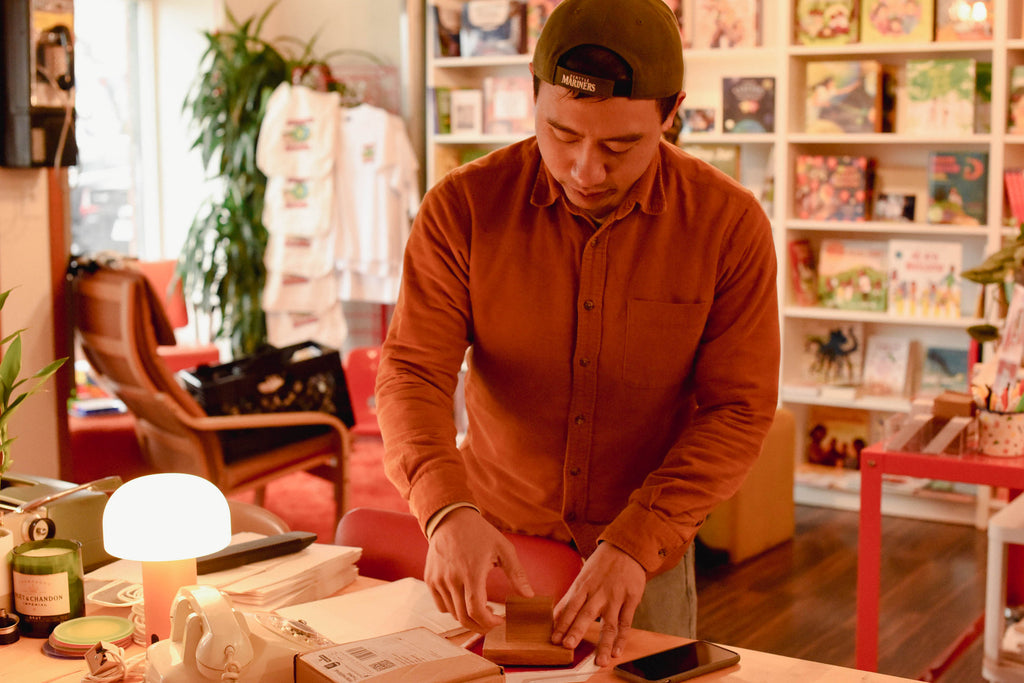
Why did you want to open up a bookstore and how did you get started?
After school, I worked for a community nonprofit in 2014 and that’s how I got involved in community activism. It was with the Seattle Chinatown International District Preservation and Development Authority. It taught me a lot about why this neighborhood is a special place - why there are elders in this community, why there are immigrant and refugee businesses here, and why this is a home for so many of us. So I just wanted to create space for us. I think it’s important for us as the next generation to really stand our ground and create spaces that are relevant for us. I mean, this bookstore is all about Asian American literature.
The fact of the matter is Chinatowns are really disappearing across the US. And yes, I think we’ve got to nurture it. Bookstores are definitely a way to create a space where people meet. I’ve met so many wonderful and beautiful people just through this bookstore. Other folks have come into the bookstore and created things, like we have an Asian American book club now. And that was through people coming in the bookstore and saying, “Hey, can we start a book club?” I think people are thirsty and hungry for space.
This place is a place for joy and celebration. We have a lot of fights in our life as people color, especially as Asian Americans. I think it's important to celebrate our wins, celebrate each other, to be able to carve out time for ourselves and nurture our health and spirit, as well. I know that this space does that for this community.
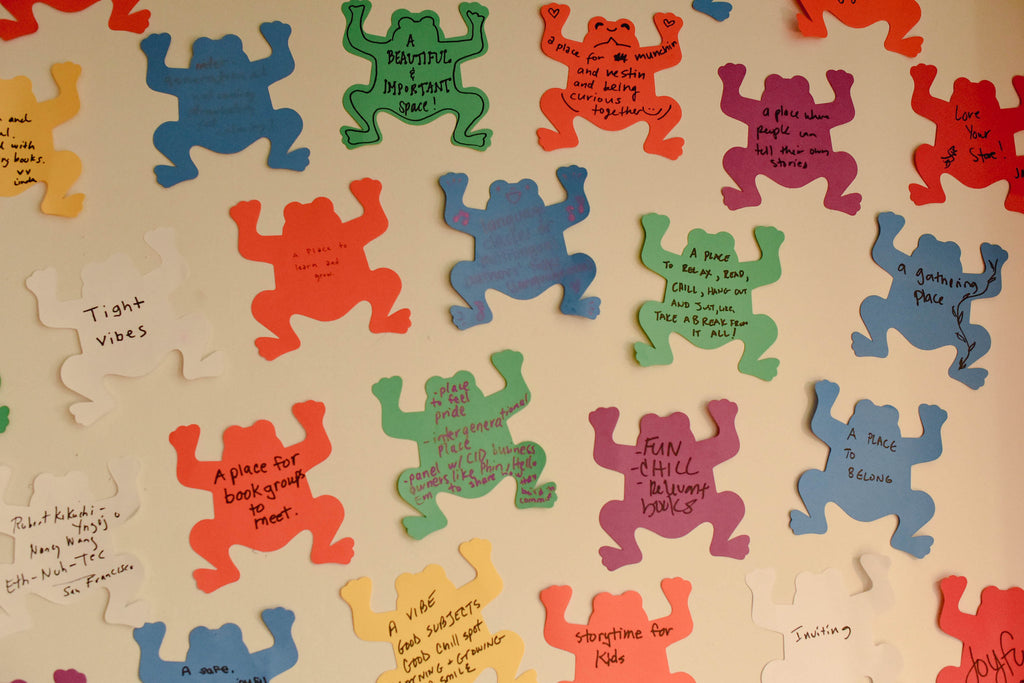
How did your family come to Seattle?
My parents are refugees from Cambodia and they came to this country [United States] in 1988. They settled in Louisiana, where I was born. And then we moved to Seattle and I grew up in White Center. Where I grew up, the community is very ethnically diverse and really made me who I am.
Now I actually live closer to the Chinatown District. I've lived in this community ever since I started working for the nonprofit. But Mam’s is truly a family run business. I come from a family of seven kids and they all help out.
What’s the meaning behind the name Mam and what is the story behind the logo?
The bookstore is named after my Dad as a dedication to my parents..
The story behind the frog in the logo is that it's based on this Chinese/Japanese proverb called “The frog in the well knows nothing of the sea.” This frog has lived inside a well his whole life and it’s all he knows - the walls surrounding him. It’s in this little playground which isn't much of a playground, until one day this bird flies over and says, “Hey, you gotta check out this big world outside.” And he's pretty stubborn and keeps coming down to the well. Finally one day, the frog says, “I gotta get this guy out of my ear.” He hops on the back of the bird and for the first time ever, he’s free of the walls. Before when he was in the well, every night and everyday, he’d only see a piece of the sky above him. But for the first time ever, he sees the entire sky, the full breadth of that changes him. So this frog represents getting out of that well. It’s connecting us all and maybe we all have our own wells. That’s what the logo represents.
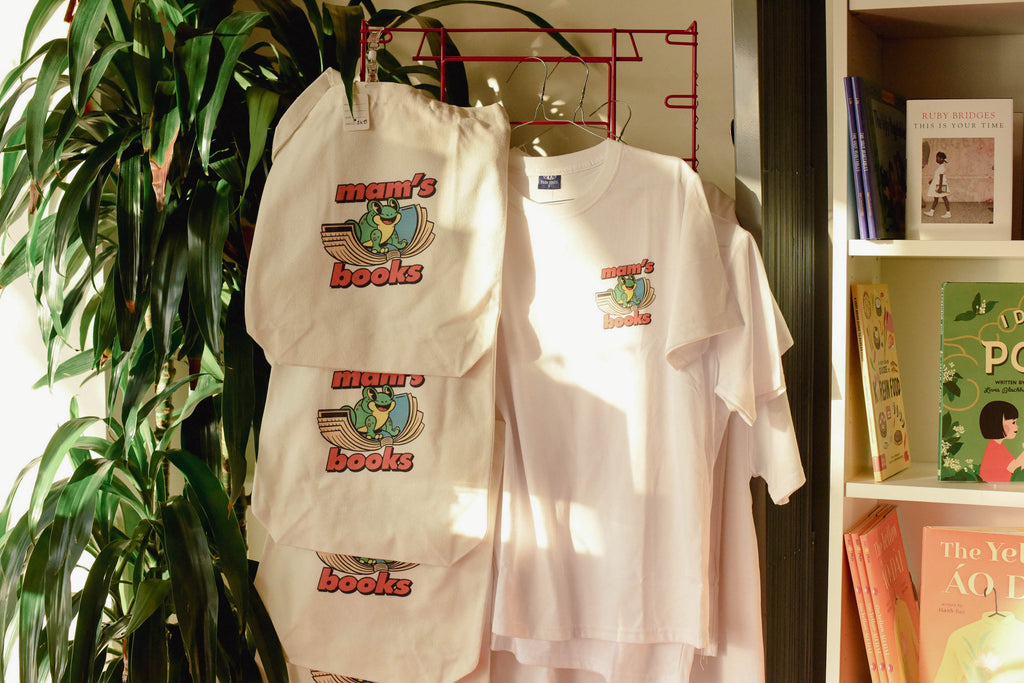
We're all about being a space for our neighborhood, our community, and CID. We're all about creating a space where Asian Americans feel seen and heard. We're all about creating a place that is filled with joy and laughter because we know that this fight that we are in for visibility for our culture is probably a lifetime fight. So I think it’s important to create a space that nourishes us as well.
Do you have any goals for Mam’s Bookstore?
Honestly, where I am in life and where I’m at right now, I think I'm just trying to enjoy this. So whatever this bookstore becomes, I just hope that whoever is on this journey with me that we move in joy in a way that is tender, is caring, and is full of love.
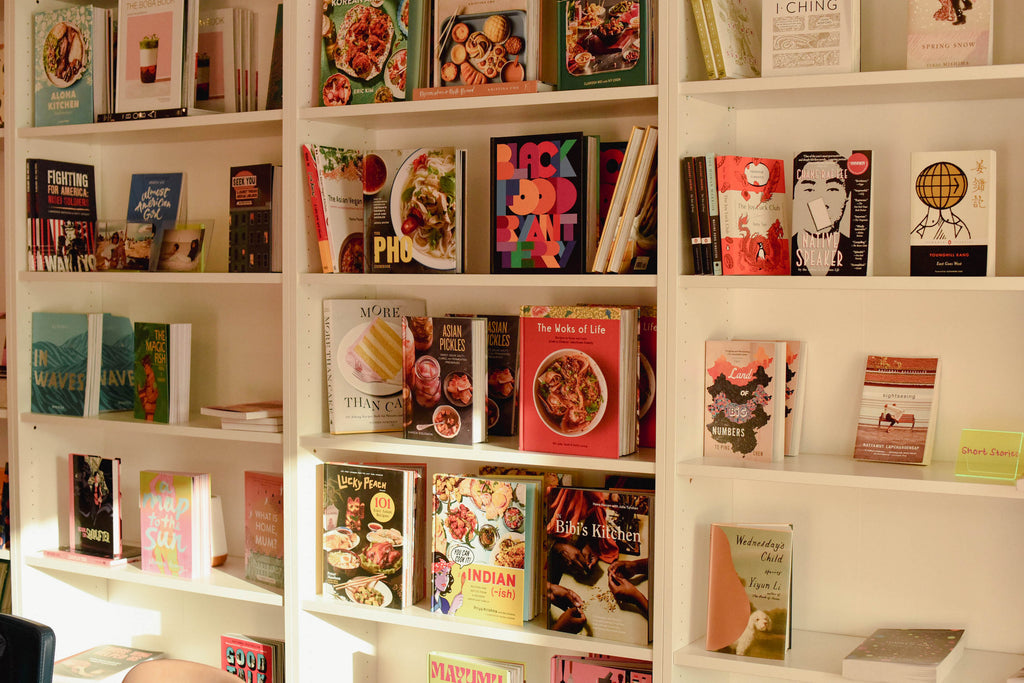
What does being a child of immigrants mean to you?
For me, it can mean a lot of things. It's a lot of joy, a lot of struggle, a lot of triumphs as well. And I think it's like a continuous thing right? You don't stop being a child of immigrants. So I think it's a continuous and lifelong experience that I will have even when I have kids, if I have kids. I think when you’re a child of immigrants, you have to be more sympathetic to the plight of other immigrants, across races, across genders, across cultures.
I think it also means finding beauty and joy with the little we have. If you have a piece of bread, let's break it up into seven pieces so we can all eat.
What was your favorite thing to read in 2023?
I love the writing and the life lessons of Thích Nhất Hạnh around mindfulness and around living life. They're the types of stories and lessons I tend to go back to, so you never completely finish in a sense.
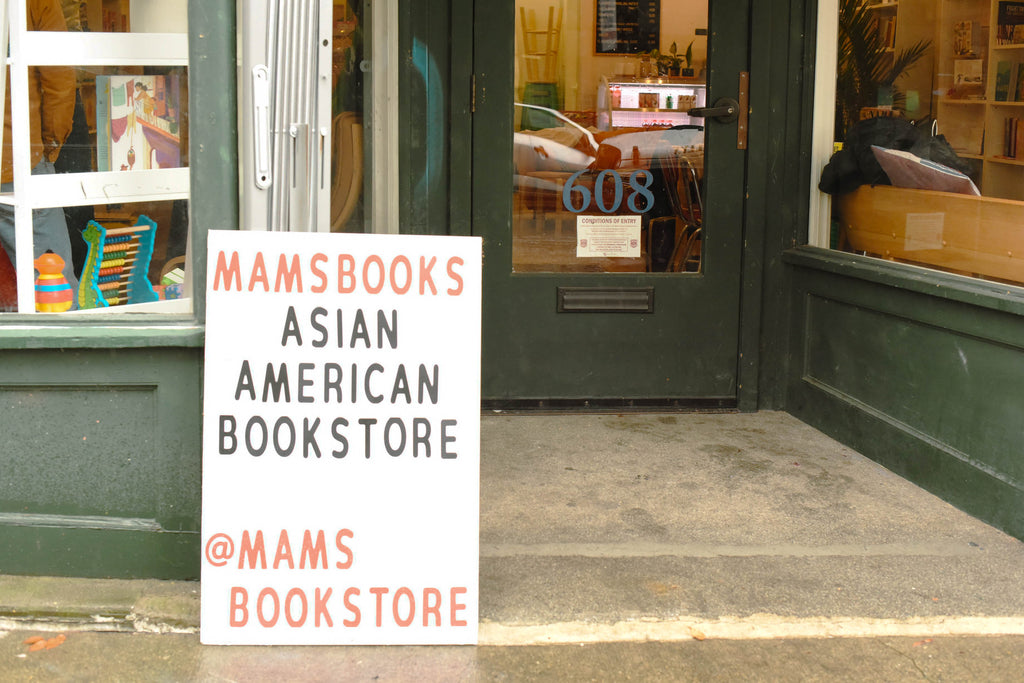
If you find yourself in Seattle, do yourself a favor and visit Mam's Bookstore at 608 Maynard Ave. S., Seattle and follow them on Instagram at @mamsbookstore.
Hello!
Do you have novels or newspapers in Khmer language?
If you do, are you willing to deliver in Montréal, Québec in Canada ?
It’s for my parents ;)
Thanks for your help.
Best regards,
Lisa Lam